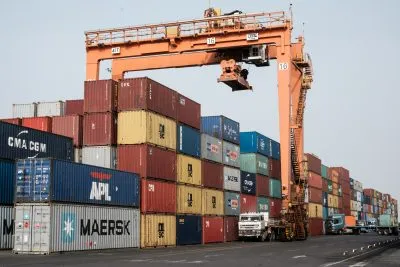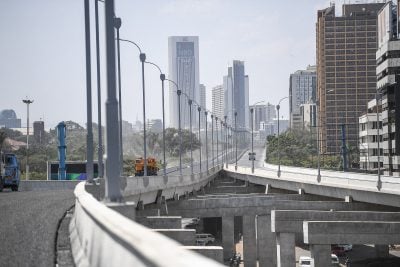Tanzania’s huge offshore gas resources could provide a viable revenue stream to finance much of its development needs. How can the country avoid the paradox of plenty, while making the sector attractive to foreign investors? Donald Mmari, Lucas Katera and Jamal Msami, from think-tank Research on Poverty Alleviation (REPOA) find out.
The discoveries of rich oil and gas reserves in the deep sea off Tanzania’s rugged coastline in 2010 and 2012 opened up a new spectrum of possibilities. If properly managed the new revenue streams could raise the living standards of the population as a whole.
Income from royalties would supplement tax revenues and allow the state to expand and deepen health, education and housing services. As seen elsewhere, properly harvesting revenues could also stimulate the economy in ways that prove a boon to large and small enterprises, which in turn would create more jobs.
Onshore processing facilities for both oil and gas would attract large investments, further boosting local economies as well as transferring skills and kick-starting supplementary industries. The positive effects would transfer to the construction industry, inject new energy in banking and insurance and have an overall positive effect on other infrastructure.
It is not surprising that the news of the hydrocarbon discoveries was greeted with great enthusiasm by both the public and the state. It presented a wonderful opportunity to close the gap in the provision of many services and make Tanzania, with its socialist leanings, a more equitable society.
On the other side of the coin there is the ever-present danger of ‘the resource curse’ that has blighted so many African countries blessed with natural resources. Those that have squandered or failed to develop their nations assets instead allowed a cycle of corruption and cronyism to eat away the revenues while their countries have remained inpoverished.
With this in mind, the Tanzanian state undertook a review of the regulatory and policy framework to avoid the pitfalls related to the natural resource curse.
In 2013, the Natural Gas Policy and the Local Content Policy were devised to provide guidance for the development of the industry and to deepen the participation of Tanzanian citizens and enterprises.
These policies were later merged into the National Energy Policy in 2015. A new Petroleum Act of 2015 was enacted, repealing the Petroleum Exploration and Production Act of 1980 and the Petroleum Act of 2008, which had focused primarily on oil business.
This 2015 Act regulates upstream, midstream and downstream operations. While previous legislation is seen to have been enacted in response to investors’ concerns, the 2015 legislation was enacted in response to the need for protecting public interests, including participation, ownership, governance, and managing of expectations.
Some of the key changes introduced by the 2015 Petroleum Act include the establishment of the Petroleum Upstream Regulatory Authority (PURA).
The Act also dispensed power to the Energy and Water Utilities Regulatory Authorities to regulate midstream and downstream of natural gas and petroleum activities, as well as powers to issue, renew, suspend and cancel construction approvals and operational licences.
The Petroleum Act further designated the Tanzania Petroleum Development Corporation as a National Oil Company and commercial agency of the government in the petroleum value chain, with the government’s right to maintain at least 51% and 25% of shares in this National Oil Company and a participating interest in petroleum projects.
The Oil and Gas Revenue Management Act (TEITI) was also enacted in 2015 to guide the use of revenue from oil and gas resources to avoid the effects of such revenues on fiscal stability, and to ensure that the benefits are spread to future generations.
It established the Oil and Gas Fund, created fiscal rules for its use, and a framework for managing oil and gas revenues. Consistent with the TEITI principles, public disclosures of the Production Sharing Agreements, licences, permits and other key documents were introduced through the passing of the Tanzania Extractive Industries (Transparency and Accountability) Act, 2015.
Broad spectrum
The Natural Wealth and Resources Act of 2017 guarantees that the use of natural wealth and resources will benefit Tanzanian citizens, and ensures that all arrangements or agreements by the government protect the interests of the people of Tanzania.
In general, the cumulative effect of these policy and legislative reforms is that the role of the state in governing investments in the extractive sector in Tanzania has been gradually strengthened, from the laissez-faire approach of early colonial times to the detailed legislation of recent years. It now covers a broad spectrum of issues including regulations for employment conditions, the environment, taxation, local content and CSR.
While the legislative reforms have been designed to increase the benefits and control of natural resources by the state and citizens, some consider them as imposing excessive control and regulation, and creating uncertainty and limited security for private investors. This could ultimately affect future petroleum exploration prospects in the country.
Industry experts argue that stable and predictable contractual and fiscal terms are important considerations in ranking investment opportunities in the extractives, since they involve substantial up-front investment, long project cycles, and significant uncertainty with respect to global prices and output.
Investors are driven by risks and returns after factoring in the provisions set out in the fiscal regime, making its stability and predictability in the foreseeable future an important aspect.
Win-win relations
The need for balanced and win-win contractual relations, however, is central to avoiding the pitfall of the natural resource curse for a nation, while ensuring that international investors have a more stable operating environment and a social licence to operate.
The Natural Wealth and Resources Act 2017 mandates the government to renegotiate or remove terms that the Parliament deems unacceptable, hence weakening the stability clauses embedded in the Mining Act of 1998 that seemed to have favoured foreign investors.
The Written Laws Act 2017 established the Mining Commission, which took over responsibilities previously carried out by the Mineral Advisory Board, the previous Commissioner of Minerals, Zonal Mines Offices and the Tanzania Mining Audit Agency. The Act also increases royalty rates on some minerals, mandates government carried interest of at least 16% on large mining projects and requires companies to list on the Dar es Salaam Stock Exchange to expand citizen participation in the sector.
The reforms in resource governance are expected to boost revenue through more transparency in tax payments and other forms of revenue from the extractives.
Other revenue flows depend on FDIs into the sector and production lead times, which are often long for major mining and natural gas projects. The level of FDIs and the speed of resource transformation will determine the extent to which the extractives will generate the resources needed to finance large infrastructure projects, reduce the debt sustainability risk, and support the achievement of Tanzania’s development goals.
Capitalising on hydrocarbons
The vast and diverse natural resources, particularly the extractives, have the potential to generate substantial financial resources in the future if the recent reforms attract further investments in the sectors and seal loopholes for leakages in tax revenues.
The prospects for the commercialisation of deep-sea natural gas depend on the ongoing negotiations between the government of Tanzania and International Oil Companies. In any case, the revenue stream from the deep-sea natural gas could be substantial, but the lead-time for that kind of project is usually long, implying that this source of revenue can only be expected after 2027 if the IOCs reach the final investment decision shortly.
The hydrocarbon discoveries off Tanzania encapsulate the fine line that governments must walk to ensure that the benefits of their natural resources go largely to their citizens while at the same time, not erecting barriers to the investment that is needed to exploit those resources.
The Research on Poverty Alleviation (REPOA) think-tank was formed in 1994 in Tanzania with the mandate to contribute to the alleviation of poverty in its multiple dimensions through research and capacity building. Over time, REPOA’s mandate has expanded beyond alleviating poverty to encompass growth and socio-economic transformation for poverty reduction.
Want to continue reading? Subscribe today.
You've read all your free articles for this month! Subscribe now to enjoy full access to our content.
Digital Monthly
£8.00 / month
Receive full unlimited access to our articles, opinions, podcasts and more.
Digital Yearly
£70.00 / year
Our best value offer - save £26 and gain access to all of our digital content for an entire year!
 Sign in with Google
Sign in with Google 



